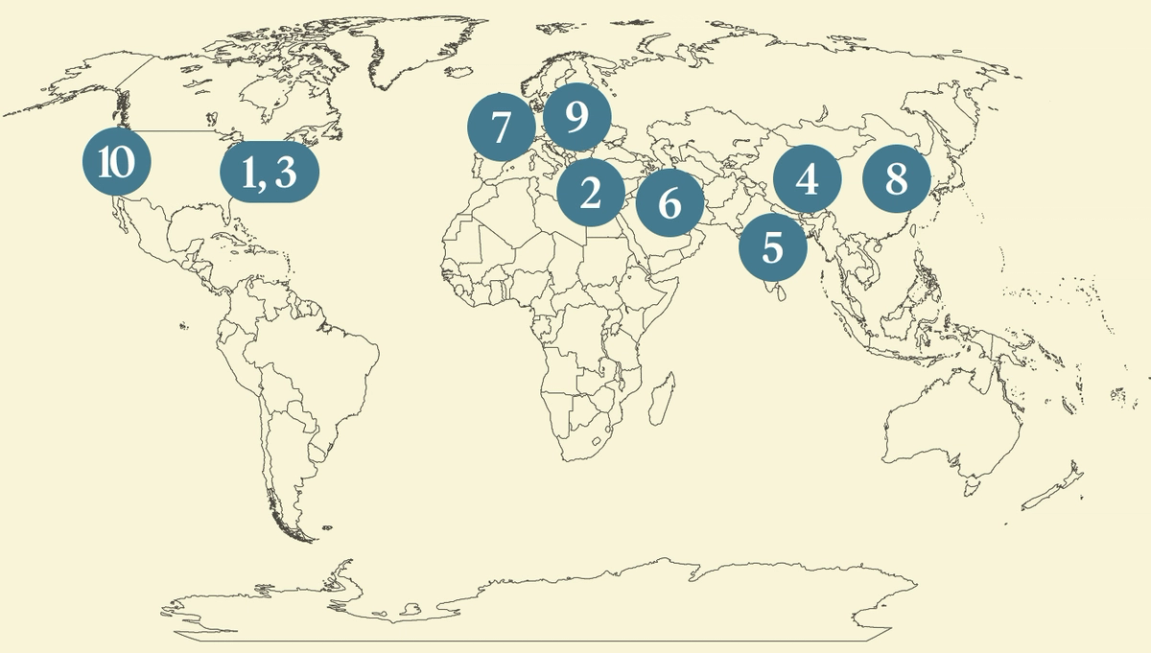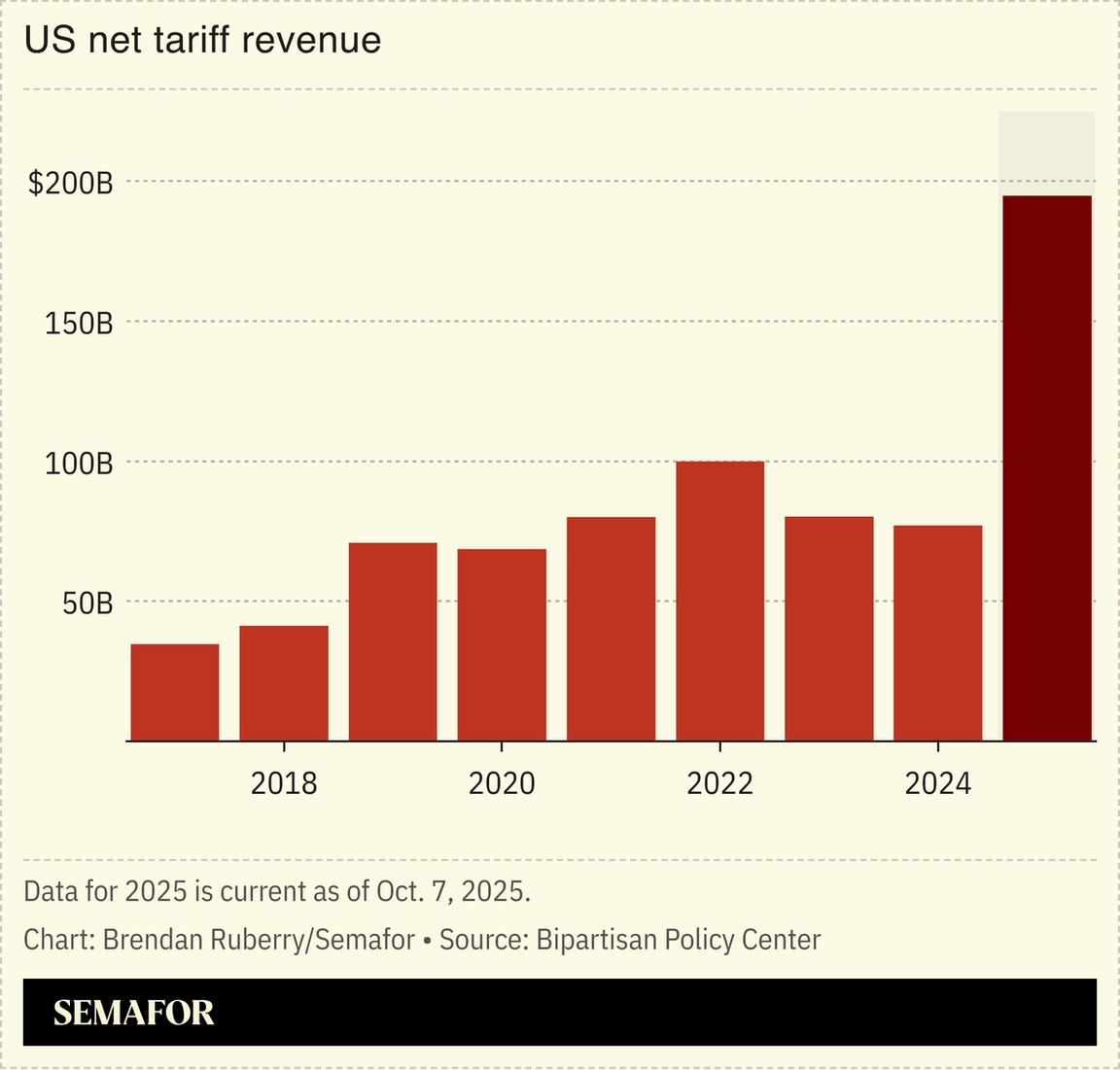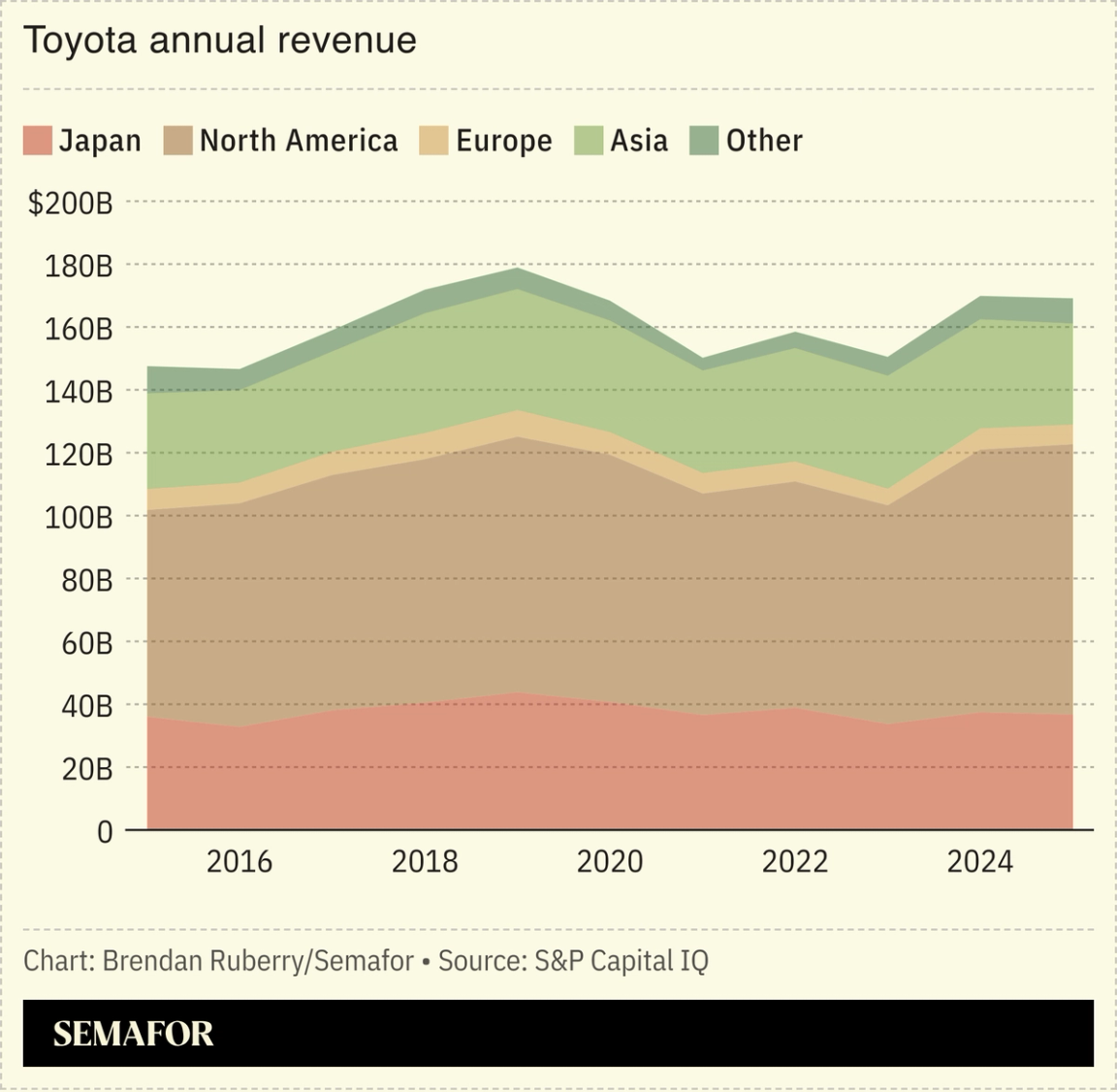| | The US Supreme Court appears skeptical of Donald Trump’s tariff regime, China bans foreign chips in ͏ ͏ ͏ ͏ ͏ ͏ |
| |  | Flagship |  |
| |
|
The World Today |  - SCOTUS hears tariffs case
- Mamdani’s global impact
- Pundits dissect historic win
- China’s new data center rules
- Japanese cars pivot to India
- Iraq kidnapping recounted
- EU members’ probation
- China astronauts stranded
- Alzheimer’s blood test
- Microdrama gold rush
 The Orient Express makes a return in Paris. |
|
SCOTUS skeptical of Trump tariffs |
 US Supreme Court justices appeared skeptical that President Donald Trump’s sweeping tariff regime is legal, as the nation’s highest court heard arguments on the duties Wednesday. The case, which centers around whether Trump infringed on the power of Congress when he used an emergency law to impose the tariffs, marks “the first major test of whether the court will embrace or limit Trump’s assertions of broad executive power,” The Washington Post wrote. The hearing also underscored a tension in Trump’s economic policy: While the White House for months has trumpeted the funds brought in by the tariffs, the government argued Wednesday that the duties are not meant to be “revenue-raising,” but merely “regulatory.” |
|
World reacts to NYC mayor’s race |
 Jeenah Moon/Reuters Jeenah Moon/ReutersZohran Mamdani’s victory in the New York City mayor’s race on Tuesday made ripples globally. Left-leaning officials in many countries, from Colombia to the UK to Hungary, hailed the democratic socialist’s win, seeing it as a triumph for progressivism worldwide. Leaders in Israel, whose government Mamdani has lambasted, decried the outcome; one minister encouraged New York Jews to move to Israel. In India, the reaction was more mixed: Mamdani is of Muslim Indian heritage, and has criticized Prime Minister Narendra Modi over his Hindu nationalist politics. Indians approach Mamdani with “more curiosity than pride,” ThePrint wrote. “He is a mirror many Indians, with their shrinking political space, don’t want to look into.” |
|
Pundits dissect Mamdani win |
 Jeremy Weine/Getty Images Jeremy Weine/Getty ImagesPolitical pundits dissected the disparate threads that vaulted a 34-year-old democratic socialist to victory in the US’ biggest city. Zohran Mamdani won the New York City mayor’s race on an affordability-focused platform that centered working-class concerns. One unexpected factor boosting his success was that he offered thousands of Gen Z campaign volunteers a prescription for “the loneliness epidemic,” one told The New York Times, by mobilizing those who were “socially stunted by the pandemic.” He was also propelled by a right-wing smear campaign that failed to counter his optimism with “Boomer fear-slop about Islam and Communism,” UnHerd argued. And by portraying his opponents as complacent establishment figures, Mamdani tapped into what journalist Derek Thompson called an “acute incumbency depression” in the US. |
|
China deepens tech self-reliance |
 Costfoto/NurPhoto via Getty Images Costfoto/NurPhoto via Getty ImagesChina is banning the use of foreign chips in state-funded data centers, Reuters reported, as Beijing deepens efforts to eliminate US technology from critical infrastructure. The new guidance highlights China’s desire to rely on its domestic semiconductor sector even if it slows development or increases costs: The government is offering subsidies to cut energy bills for data centers using locally made chips, rather than more energy-efficient foreign processors. Beijing’s self-sufficiency push could present a warning and lesson to other countries as sovereign tech becomes a national rallying cry. France helped its AI champion Mistral with its data center buildout, and the US is attempting to do the same, though debates around export controls and regulations are hindering those efforts. |
|
Japanese automakers turn to India |
 Top Japanese automakers are investing billions in India, marking a pivot away from China. Toyota, Honda, and Suzuki plan to increase manufacturing in India, leveraging the country’s low costs and massive labor pool; heightening US-China trade tensions have also made India “a strategic hedge” for global companies, The Economic Times wrote. India’s high-profit market, coupled with New Delhi’s restrictions on Chinese investment, also appeal to Japanese carmakers facing diminishing margins in China amid a bruising price war. But the arrival of EVs in India could shake up the world’s third-largest auto market: Adoption is low, around 5%, and local players are fighting with foreign firms, including Tesla and Vietnam’s VinFast, for market share. |
|
Researcher recounts kidnapping in Iraq |
An Israeli Russian woman’s account of being tortured by an Iran-backed militia for two and a half years underscores how freely the group is able to operate in Iraq. Elizabeth Tsurkov, a 38-year-old researcher of the Iraqi Shiite movement, was taken in Baghdad in 2023; recounting her time in captivity for the first time since being freed in September, she told The New York Times she “never saw the sun” and was used “as a punching bag” by the Kataib Hezbollah paramilitary faction. Iraq’s government has little control over “the most disciplined and feared pro-Iran militia” in the country, one analyst said, despite many members receiving state salaries. Tsurkov was released following US diplomatic pressure. |
|
EU weighs ‘probation’ for new members |
 Yves Herman/Reuters Yves Herman/ReutersFuture EU members may be put on probation and potentially removed from the bloc in the event of democratic backsliding. The union hopes to bring more countries under its aegis in coming years, an enlargement process revived by Russia’s invasion of Ukraine. But some capitals are concerned that new entrants could follow Hungary’s course of joining the EU and then abandoning the democratic ideals that allowed them in — and, like in Budapest’s case, becoming a tacit ally of Moscow. The bloc’s enlargement chief told the Financial Times that such “Trojan horses” could be prevented with a transition period. Ukraine, Moldova, and several west Balkan countries are on the candidate list, with Moldova best placed to join the club. |
|
Space debris delays taikonauts’ return |
|
Approval for Alzheimer’s blood test |
 MD Abu Sufian Jewel/NurPhoto via Getty Images MD Abu Sufian Jewel/NurPhoto via Getty ImagesThe US and Europe approved a blood test to help diagnose Alzheimer’s disease. The test measures the blood concentration of tau protein, one of two proteins found in the brains of Alzheimer’s patients. The tests are good at ruling Alzheimer’s out, but give a lot of false positives — tau protein can be found in healthy brains too — so will be of limited use for detecting the disease in patients with no symptoms. Tests for Alzheimer’s were, until recently, essentially pointless, WIRED noted, because no meaningful treatments existed: That has changed, somewhat, with the arrival of monoclonal antibody drugs, which work best when used early in disease progression. But even the new drugs only have a moderate effect on the condition. |
|
Microdramas come to Hollywood |
 Microdrama set. Ma Jian/VCG via Getty Images Microdrama set. Ma Jian/VCG via Getty ImagesHollywood is starting to bet big on soapy “microdramas.” The often-raunchy vertical video series are produced on a small budget, making them attractive to investors: Entertainment industry veterans are now investing millions in microdrama ventures, with the hopes of improving their quality, reach, and scope, The Hollywood Reporter wrote. The genre first took off years ago in China; executives there used granular viewership data to learn “the formula for evoking strong emotions from their viewers,” WIRED wrote. Microdramas are so popular in China that luxury retailers like Loewe are making their own series, The Business of Fashion reported, though analysts questioned if such marketing ploys eroded their prestige. |
|
|